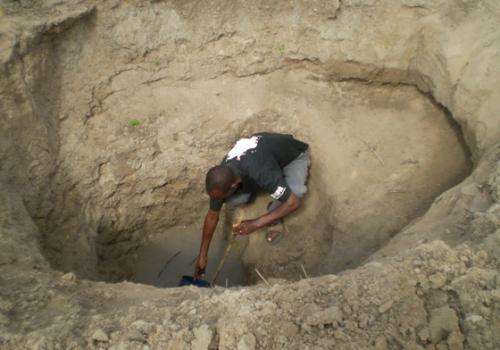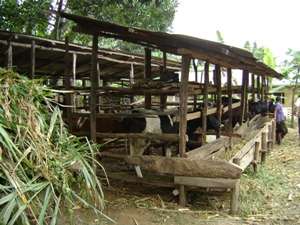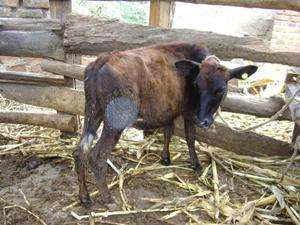Milk production is a major source of income for many farmers in Tanzania and therefore an important factor in combating poverty in the region. But the health and growth of the calves and the milk production rate is often poor.
Jelly Senyagwa Chang'a's doctoral research project appraised the health and performance of calves belonging to dairy breeds in the eastern part of the southern highlands in Tanzania. She discovered that the dairy farmers had scant knowledge about feeding and looking after calves, but also that there was a relatively low rate of clinical diseases, blood parasites and endoparasites in calves in the region. The low growth rate from birth to weaning was first and foremost due to feeding and less to do with health issues.
A cow shed in one of the smallholder dairy farms in Tanzania. Credit: Jelly S. Chang'a
Chang'a studied the calves' living conditions and found that a low growth rate was linked to what time of year the calf was born, the amount of milk feed, the source of drinking water and the age of weaning. She also examined individual parameters having a significant bearing on the growth of the calves and found low blood levels of total protein, phosphorus and haemoglobin and that blood urea was high in the calves that grew slowly.
It was assumed that cryptosporidia (gastrointestinal parasites) were partly the cause of poor growth and health in calves in the study area, but the results of Chang'a's work show that these parasites only have a small impact on the health of the calves.
A six-month-old calf indicating poor growth. Credit: Jelly s. Chang'a
This PhD project was carried out at the Norwegian School of Veterinary Science, while the field data were collected in Tanzania.
Jelly Senyagwa Chang'a defended her doctoral research on 6th December 2012 with a thesis entitled "Calf health and performance in Tanzanian smallholder dairy farms."
Provided by Norwegian School of Veterinary Science






















